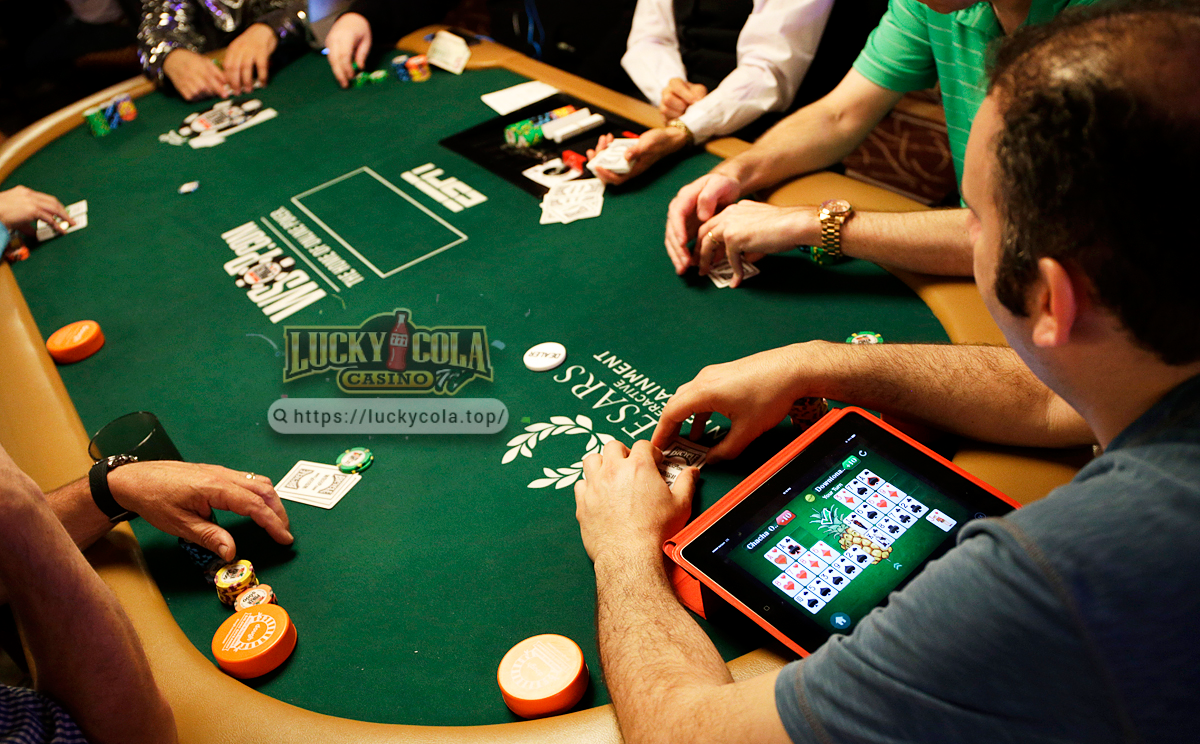
In the world of online casino card games, the ability to read your opponent’s hand can be the difference between victory and defeat. Whether you are playing poker, blackjack, or any other card game, understanding your opponents’ tendencies and potential hands can significantly enhance your decision-making process. This guide will delve into the strategies and techniques for effectively reading your opponent’s hand in online casino card games, particularly at Lucky Cola.
The Importance of Reading Opponents
Why Reading Hands Matters
Reading your opponent’s hand is crucial for several reasons:
- Informed Decision-Making: Understanding what your opponents might be holding allows you to make more informed decisions, such as whether to bet, call, raise, or fold.
- Exploiting Weaknesses: By analyzing your opponents’ betting patterns and behaviors, you can identify weaknesses and exploit them to your advantage.
- Gaining a Psychological Edge: Successfully reading your opponents can instill confidence in your play and cause them to second-guess their decisions, providing you with a psychological advantage at the table.
Understanding the Basics of Hand Reading
Before diving into advanced techniques for reading hands, it’s essential to grasp the fundamentals of what to look for in your opponents’ behavior and actions.
Key Indicators to Observe
- Betting Patterns: Pay attention to how much and how often your opponents bet in various situations. Are they aggressive or conservative? Do they tend to raise frequently, or do they play passively?
- Timing of Actions: The speed at which your opponents make their decisions can be revealing. Quick bets may indicate confidence in a strong hand, while hesitation can suggest uncertainty or weakness.
- Physical Tells: In live dealer games, physical tells can provide valuable insights. Although you won’t have the same visual cues online, look for behavioral patterns in betting and chat interactions.
- Previous Showdowns: If you’ve played several hands with the same opponents, take note of the hands they’ve shown down. This information can help you build a profile of their playing style and tendencies.
Strategies for Reading Opponents in Online Casino Card Games
1. Analyzing Betting Patterns
Understanding your opponents’ betting patterns is one of the most effective ways to gauge the strength of their hands. Here are some common betting patterns to observe:
- Aggressive Betting: If a player frequently raises or bets large amounts, they may be confident in their hand or attempting to bluff. Assess the context of the game and the players involved to determine if their aggression is justified.
- Passive Play: Players who check and call frequently may be playing cautiously, indicating weaker hands. Conversely, a sudden bet or raise from a typically passive player could suggest they have a strong hand.
- Continuation Bets: In poker, a continuation bet is made by the player who raised pre-flop. If a player continues to bet after the flop, it may indicate they have hit something on the board or are trying to maintain the aggression.
2. Timing Tells
In the online environment, timing tells can be crucial. Here’s how to interpret the timing of your opponents’ actions:
- Quick Bets: If your opponent makes a decision quickly, they may have a strong hand or a well-defined plan. Conversely, if they take a long time to act, they may be uncertain about their hand.
- Consistent Timing: Pay attention to how consistently your opponents take their time. A player who takes longer on certain hands and acts quickly on others may have a pattern that you can exploit.
3. Understanding Player Types
Identifying different player types can help you read hands more effectively. Here are the most common player types you may encounter:
- Tight Players: These players are selective with their hands and often only play strong cards. If they are betting aggressively, it’s likely they have a solid hand.
- Loose Players: Loose players will play a wide range of hands. Their unpredictable nature can make it challenging to read their hands, but they often bluff more, so be cautious.
- Aggressive Players: These players frequently raise and bet aggressively, regardless of their hand strength. If you notice an aggressive player, be prepared to call their bluffs but also recognize when they genuinely have a strong hand.
- Passive Players: Passive players tend to call rather than raise. If they suddenly make a substantial bet, it can indicate a strong hand.
4. Using Position to Your Advantage
Your position at the table can significantly influence your ability to read your opponents. Here’s how to leverage your position:
- Late Position: If you are seated in a late position, you have the advantage of observing how your opponents act before making your decision. Use this information to gauge the strength of their hands.
- Early Position: In an early position, you have to act before most of your opponents. This scenario requires you to play more conservatively, as you won’t have as much information about their hands.
5. Reading Community Cards
In card games like poker and blackjack, community cards play a crucial role in determining hand strength. Here’s how to analyze them effectively:
- Assess the Board: Evaluate the community cards and consider how they connect with potential hands. For example, if the board is coordinated with cards of the same suit or connected ranks, your opponents may have hit a strong hand.
- Identify Draws: Be mindful of potential straights and flushes. If the board presents multiple drawing possibilities, your opponents may be holding cards that can complete those draws.
6. Keeping Track of Showdowns
Pay close attention to the hands that your opponents show at the end of each round. This information can help you build a profile of their playing style:
- Note Patterns: Keep track of how often your opponents play certain hands. If a player consistently shows down strong hands when they bet aggressively, it may indicate that they are not bluffing as often.
- Adjust Your Strategy: Use the information gathered from showdowns to adjust your strategy against specific players. If you know a player is prone to bluffing, you may be more inclined to call them out.
Practical Applications in Online Card Games
Example Scenarios
To better illustrate how to read opponents’ hands, let’s look at a few practical examples:
Example 1: A Tight Player Raises Pre-Flop
- Scenario: You’re playing Texas Hold’em, and a tight player raises pre-flop. Based on their tight playing style, you can deduce that they likely have a strong hand.
- Decision: Consider folding weaker hands unless you have a premium hand, as the tight player’s raise indicates strength.
Example 2: A Loose Player Bets Aggressively
- Scenario: A loose player bets aggressively on the flop after several players check. Their aggressive betting may indicate they’ve hit a strong hand or are trying to bluff.
- Decision: Assess your hand strength and consider calling or raising based on your read of the player’s tendencies. If you have a decent hand, it might be worthwhile to challenge their aggression.
Example 3: A Passive Player Suddenly Raises
- Scenario: A usually passive player suddenly raises after the turn. This sudden aggression could indicate they have improved their hand significantly.
- Decision: Be cautious and evaluate your hand against their potential strength. Consider folding if you have a weak hand, as the sudden shift in their behavior suggests confidence.
Conclusion
Reading your opponent’s hand in online casino card games is a vital skill that can greatly enhance your chances of winning. By observing betting patterns, timing, player types, and community cards, you can develop a keen sense of what your opponents might be holding. At Lucky Cola, the excitement of online card games is complemented by the opportunity to apply these hand-reading techniques effectively. As you continue to play and practice, remember that reading opponents is a skill that improves with experience and observation. So, sharpen your skills, stay attentive to your opponents, and may your ability to read hands lead you to victory at the virtual tables.




















